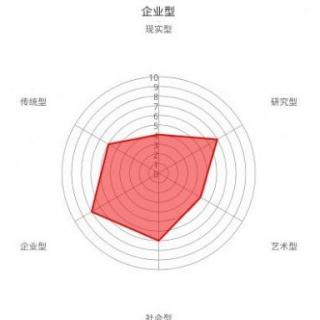
介绍:
想成为我们的主播,欢迎加微信 xdfbook 投稿。
一段美文,一首英文歌,或是一点生活感想,全由你做主。
《身兼多职:职业规划新方向》
The Next Generation of Jobs Won’t Be Made up of Professions
When Jean-Philippe Michel, an Ottawa-based career coach, works with secondary school students, he doesn’t use the word profession. Neither does he focus on helping his young clients figure out what they want to be when they grow up—at least not directly.
For him, there’s really no such thing as deciding on a profession to grow up into.
Rather than encouraging each person to choose a profession, say, architect or engineer, he works backwards from the skills that each student wants to acquire. So instead of saying, “I want to be a doctor”, he’ll aim to get students to talk about a goal, in this case “using empathy in a medical setting.”
It might seem a bit esoteric1), but the twist in language helps boil down2) real objectives. And sometimes those don’t jibe with3) a single profession or even the career choice you might have imagined wanting at the start. Instead, Michel says deciding the skills you want to use leads to a career that’s more targeted—and thus more likely to bring you satisfaction. It also might be less a job and more a set of projects and work situations that lead you from one thing to the next.
“They need to shift from thinking about jobs and careers to think about challenges and problems,” Michel says. Easier said than done for, say, Gen X4) or even older millennials5), but it’s not so out of the realm of thinking for younger people, who are already narrowing down their university studies .
The purpose, above all, is to prepare the next generation for a career in the future, which for many will be made up of numerous micro-jobs6) aimed at well-paid skilled workers, and not a single boss and company, he says.
Ultimately, developing precise goals helps teenagers plan for what many call a “portfolio career7).” This type of career is made up of somewhat disparate8) projects or roles and will be more prevalent in the next decade, says Michel.
“They are going to have to carve out a niche9) that’s more specific than it once was,” he believes.
The Demise10) of Traditional
Futurists and human resource executives say that our work lives will consist of doing several long-term projects or tasks at once.
“Instead of identifying your job role or description, you [will be] constantly adding skills based on what is going to make you more employable,” says Jeanne Meister, New York-based co-author of The Future Workplace Experience.
If you’re younger, this will likely mean the ability to pursue flexibility and passions rather enter into a more traditional role, say in accounting or marketing or finance.
The precursor11) for this shift is already here;
it’s becoming more common to take on various roles even within one company, says Esther Rogers, who helps publish a quarterly journal about insight and foresight in the workplace, in addition to client work, as part of her role at Idea Couture, a Toronto-based innovation and design firm. Out of office hours, she also takes on voice acting roles. There’s “a real mishmash12) of tasks within a role. It’s already becoming difficult to come up with [job] titles,” says Rogers.
Internal Freelancer?
The idea of building a portfolio career has been around since the late 1980s, tapping into13) the dreamy interest many of us have in forging a one-of-a-kind career path. But, until recently, the idea has been more theory than practice since a lack of technology made it time-consuming to find out about new opportunities. Now that the technology has created more opportunities in the gig economy14)—think Uber, Instacart15) or TaskRabbit16)—the micro-job concept is making its way up the professional ranks.
More traditional companies are catching on and offering freelance-like project opportunities to their own employees, says Meister. For example, both IT giant Cisco and financial services firm MasterCard are testing so-called “internal mobility platforms” that allow employees to cherry-pick17) projects to fill specific gaps for the company rather than staying in a more structured role, says Meister. Instead of continuing in one department under a single supervisor, workers are encouraged to choose their next projects based on their skills, or skills they want to develop, which can mean working in a different part of the company. She says it’s working, although they’ve yet to study return on investment of the effort.
Michael Stull, a senior vice president at Manpower Group, a global human resource consulting firm in the US state of Wisconsin, says more firms are demanding similar setups.
For companies, the payoff for experimenting with internal project-based opportunities means workers are less likely to jump from one company to the next, says futurist Jacob Morgan, author of The Employee Experience Advantage, based in the US state of California. Micro-jobs can inspire a sense of entrepreneurial spirit and autonomy within a company, he explains, which in turn might keep us from job-hopping to the competition.
Forging a Career Path
Choosing where and how you work seems fun, right? But when it comes to forging a long-term career, there are drawbacks18) to creating a portfolio of work, say experts.
If you constantly hop from one project to the next, the change can be jarring19) and leave you without a clear path to benchmark success.
With fewer promotions and changes to job titles, it can be more difficult to feel like you’re succeeding even if you’re regularly completing projects, says career coach Michel. What’s more, our identity is often wrapped up in the type of work we do, which doesn’t really fit the micro-job collecting life.
And, of course, even though some companies are experimenting, steering past a traditional mentality on what constitutes professional growth can take years to change.
“The biggest barrier to adapting,” says Meister, “is mindset.”
让-菲利普·米歇尔是渥太华的一名职业指导师。在指导中学生时,他不会使用“职业”一词,也不会将工作重心放在帮他的小客户们弄明白自己长大后想要做什么上,起码不会直接帮他们。
对他来说,就没有决定长大后要从事什么职业这回事儿。
他不会鼓励人人都去选择一份职业,比如建筑师或工程师,而是逆向引导,从每名学生想要获得的技能着手。所以,他会努力让学生们去谈论一个目标,拿当医生的例子来说,谈谈“在一个医疗环境中运用移情”,而不是说“我想要成为一名医生”。
这可能显得有点难以理解,但是,这种语言上的变化有助于归结真正的目标。有时候,这些目标与某个职业、甚至是你一开始可能设想过的想要的职业选择并不一致。反过来,米歇尔声称,确定你想要使用的技能将引领你找到目标更加明确的事业,因而更有可能给你带来满足感。而引领你从一件事投入到下一件事的,也可能不是一份工作,而更有可能是一组项目和工作场景。
“他们需要转变思维,将思考的重点从工作和事业转到挑战和问题上来。”米歇尔说。对有些人来说,比如X一代甚至是千禧一代中年龄较大的一些人,这说起来容易,做起来难;但对于那些更年轻的人而言,这并不是什么超乎想象的事,他们已经开始缩小在高校学习的范围。
米歇尔说,归根结底,这样做的目的是要让下一代做好准备,去面对未来的职业生涯。对很多人来说,未来的职业生涯将由许多面向高薪技术工人的微工作组成,而不是限定于某一个老板或某一家公司。
从根本上说,制定清晰的目标有助于青少年为很多人所说的“组合型职业”进行规划。米歇尔称,未来十年,这种由不尽相同的一些项目或职责组成的职业类型会更加普遍。
他认为:“学生们将不得不开创比以往更加明确、具体的事业。”
传统的消亡
未来主义者和人力资源主管们认为,我们的工作生涯将由同时进行的多个长期项目或任务构成。
《未来职场体验》一书的共同作者、来自纽约的珍妮·迈斯特说:“你将根据什么能提升你的就业能力去不断增加技能,而不是去确定你的工作职责或内容。”
你如果更年轻,这很可能会意味着你有能力去追求灵活和激情,而不是进入一个更加传统的职业,比如会计、市场营销或金融。
这种转变的先兆已经出现了。埃丝特·罗杰斯表示,即便是在同一家公司内,一个人担负多种不同职责的情况正变得越来越普遍。罗杰斯在多伦多一家名为“创意时装”的创意设计公司工作,她的工作职责之一是客户工作。除此之外,她还帮忙出版一本有关职场洞见与展望的季刊。工作时间之外,她还做角色配音表演。“一个人的职责中确实混杂着各种工作,已经很难用[工作]头衔来描述了。”罗杰斯说。
内部自由职业者?
打造组合型职业的理念自20世纪80年代以来就一直存在,利用了我们中很多人对开创独一无二的事业道路持有的不切实际的兴趣。但直到不久之前,该理念都是理论多于实践,由于缺乏技术,使得寻找新的机会很费时间。如今既然技术在零工经济中创造出了更多的工作机会——想想优步、速达或任务兔子——微工作理念将为越来越高的职务所接纳。
迈斯特说,越来越多的传统企业有了这方面的意识,并为自己的员工提供类似自由职业的项目机会。比如IT巨头思科和金融服务公司万事达卡,都在测试所谓的“内部流动平台”。迈斯特称,这种平台允许员工挑选项目,为公司填补一些具体的空缺,而不是让其一直待在某个更加结构化的职位上。公司鼓励员工根据自己已有的技能或是想要培养的技能来选择接下来要做的项目,而不是继续待在一个部门受一位上司的领导。这意味着员工可以在公司的不同部门工作。她说这种机制已经开始起作用了,虽然公司尚未研究这种尝试的投资回报率。
迈克尔·斯塔尔是美国威斯康星州一家名为“人力集团”的全球化人力资源咨询公司的资深副总裁。他表示,越来越多的公司正在要求建立类似的机制。
来自美国加利福尼亚州的未来主义者、《员工体验优势》一书的作者雅各布·摩根声称,对企业而言,进行内部项目机会试验的回报在于降低了员工跳槽的可能性。他解释说,微工作能激起一种企业家精神,使人感觉自己在公司内部可以自主,这反过来会防止员工跳槽去竞争对手那儿。
设计职业路径
选择在哪儿工作、怎样工作似乎很有趣,是吧?但专家们认为,当涉及长期的职业发展时,打造组合型工作就有一些劣势。
你如果不断地从一个项目跳到另一个项目,这种变化可能会令你觉得不舒服,而且使你无法走出一条清晰的路径,引领你取得标准意义上的成功。职业指导师米歇尔声称,由于职务晋升和工作头衔的变化都会更少,你即便经常完成各种项目,也很难觉得自己正在取得成功。还有,我们的身份常常被我们所从事的工作所裹挟,这其实不适合那种微工作汇集型的生活。
………………
文章摘自:《新东方英语》杂志2017年7月号
大家还在听

